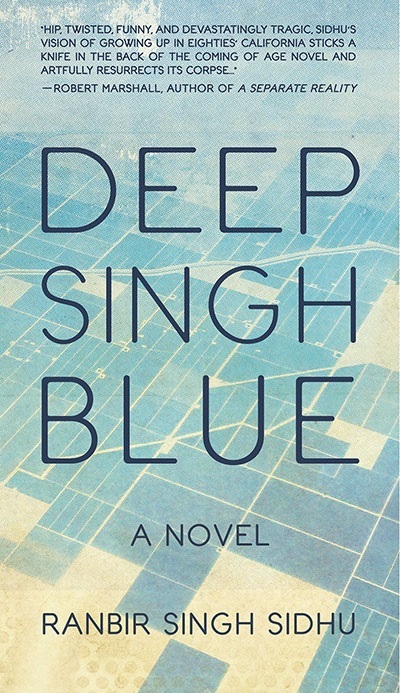Spinoza speelt belangrijke rol in recente Amerikaanse roman
Hawa Allan gaf zijn bespreking die gisteren in The Los Angeles Review of Books van deze
vorig jaar verschenen roman de titel mee: "Spinoza and the All-American
Novel: Ranbir Singh Sidhu" [cf.]
Ranbir Singh Sidhu, Deep Singh Blue. A Novel. The Unnamed Press, maart 2016 [cf. bij bol.com een reeks laaiend enthousiaste uitingen in recensies]

Het boek gaat over de coming of age van een jonge immigrant
in de racistische omgeving van een suburb van San Francisco in de 1980-iger
jaren. Deep, de ik-persoon-verteller, is het kind van Sikhs die India verlieten
in de hoop om in de Verenigde Staten meer kansen voor een beter leven te
vinden. Deep groeit op in een vijandige omgeving en wil z’n gezin verlaten, z’n
stad en vooral z’n leven.
Ik citeer een alinea uit de bespreking:
Among the few spaces that allow
respite from his poisonous suburb and dysfunctional family is a local used
bookstore. Although it stocks “mostly romances and Bibles,” Deep comes across a
copy of Spinoza’s Ethics. He flips the book open to find the words “DIE JEW”
scrawled across the title page. Nearby is a Nazi-inspired swastika, but drawn
backward, thus depicting the auspicious ancient Hindu sign. Deep pulls out a pen
and starts scratching out the obscenity. When another patron catches him in the
act, Deep figures that he has to buy the book or risk censure from the store
clerk. To his surprise, he finds himself absorbed in the text — a dense
philosophical treatise, which proceeds from axioms to propositions in order to
uncover the true nature of reality. His name, after all, is Deep. He is
intrigued by Spinoza’s reasoning that the world as we know it operates in
divine perfection, and that in order to realize this we must cease being
reactive and reflect on our thoughts and emotions; we must continually
reevaluate and thereby refine our consciousness. Spinoza, in other words,
offers Deep a path, a way out of his frustration and into freedom.
Zie ook deze passage in de bespreking van Heather Mackey op Your Impossible Voice [cf.]
“Blame Spinoza,” the second
chapter begins, with Ishmael-like assertion. Set like a frame around the
novel’s action is a quote from the Enlightenment philosopher’s Ethics: “Reality
and perfection I use as synonymous terms.”
First encountered in a used
bookstore, Spinoza is set as a counterweight to Deep’s adolescent crises. Time
and again, Deep returns to the meaning of Spinoza’s perfect world, concluding,
“this world was perfect, because it could be nothing else except exactly as it
was.” Over the course of the book we see Deep meet this sometimes confounding,
sometimes comforting axiom and wrestle a truth from it.
Enfin, iets om op dit blog te signaleren.

